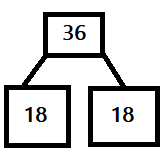Engage NY Eureka Math 1st Grade Module 4 Lesson 29 Answer Key
Eureka Math Grade 1 Module 4 Lesson 29 Problem Set Answer Key
Question 1.
Solve using quick ten drawings, number bonds, or the arrow way.
a. 13 + 12 = ____
Answer:25
A number bond is a simple addition of two numbers that add up to give the sum. Using number bonds, one can instantly tell the answer without the need for the actual calculation. Number bonds help us to understand that a whole number is made up of parts.
Given two numbers are 13 and 12
By adding 13 and 12 we get 25
13+12=25
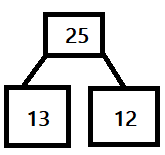
b. 23 + 12 = ____
Answer:35
A number bond is a simple addition of two numbers that add up to give the sum. Using number bonds, one can instantly tell the answer without the need for the actual calculation. Number bonds help us to understand that a whole number is made up of parts.
Given two numbers are 23 and 12
By adding 23 and 12 we get 35
23+12=35
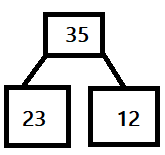
c. 13 + 16 = ____
Answer:29
A number bond is a simple addition of two numbers that add up to give the sum. Using number bonds, one can instantly tell the answer without the need for the actual calculation. Number bonds help us to understand that a whole number is made up of parts.
Given two numbers are 13 and 12
By adding 13 and 12 we get 25
13+12=25
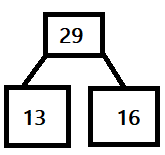
d. 23 + 16 = ____
Answer:39
A number bond is a simple addition of two numbers that add up to give the sum. Using number bonds, one can instantly tell the answer without the need for the actual calculation. Number bonds help us to understand that a whole number is made up of parts.
Given two numbers are 23 and 16
By adding 23 and 16 we get 39
23+16=39
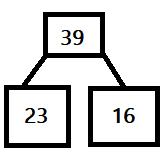
e. 13 + 27 = ____
Answer:40
A number bond is a simple addition of two numbers that add up to give the sum. Using number bonds, one can instantly tell the answer without the need for the actual calculation. Number bonds help us to understand that a whole number is made up of parts.
Given two numbers are 13 and 27
By adding 13 and 27 we get 40
13+27=40
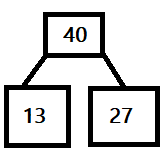
f. 17 + 16 = ____
Answer:33
A number bond is a simple addition of two numbers that add up to give the sum. Using number bonds, one can instantly tell the answer without the need for the actual calculation. Number bonds help us to understand that a whole number is made up of parts.
Given two numbers are 17 and 16
By adding 17 and 16 we get 33
17+16=33
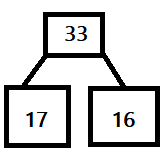
g. 14 + 18 = ____
Answer:32
A number bond is a simple addition of two numbers that add up to give the sum. Using number bonds, one can instantly tell the answer without the need for the actual calculation. Number bonds help us to understand that a whole number is made up of parts.
Given two numbers are 14 and 18
By adding 14 and 18 we get 32
14+18=32
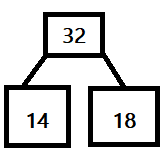
h. 18 + 17 = ____
Answer:35
A number bond is a simple addition of two numbers that add up to give the sum. Using number bonds, one can instantly tell the answer without the need for the actual calculation. Number bonds help us to understand that a whole number is made up of parts.
Given two numbers are 18 and 17
By adding 18 and 17 we get 35
18+17=35
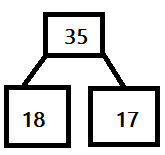
Question 2.
Solve using quick ten drawings, number bonds, or the arrow way. Be prepared to discuss how you solved during the Debrief.
a. 17 + 11 = ____
Answer:28
A number bond is a simple addition of two numbers that add up to give the sum. Using number bonds, one can instantly tell the answer without the need for the actual calculation. Number bonds help us to understand that a whole number is made up of parts.
Given two numbers are 17 and 11
By adding 17 and 11we get 28
17+11=28
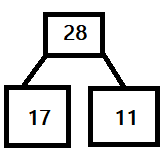
b. 17 + 21 = ____
Answer:38
A number bond is a simple addition of two numbers that add up to give the sum. Using number bonds, one can instantly tell the answer without the need for the actual calculation. Number bonds help us to understand that a whole number is made up of parts.
Given two numbers are 17 and 21
By adding 17 and 21 we get 38
17+21=38
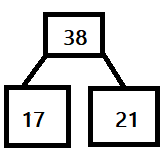
c. 27 + 13 = ____
Answer:40
A number bond is a simple addition of two numbers that add up to give the sum. Using number bonds, one can instantly tell the answer without the need for the actual calculation. Number bonds help us to understand that a whole number is made up of parts.
Given two numbers are 27 and 13
By adding 27 and 13 we get 40
27+13=40
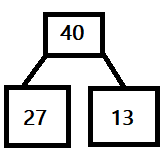
d. 17 + 14 = ____
Answer:31
A number bond is a simple addition of two numbers that add up to give the sum. Using number bonds, one can instantly tell the answer without the need for the actual calculation. Number bonds help us to understand that a whole number is made up of parts.
Given two numbers are 17 and 14
By adding 17 and 14 we get 31
17+14=31
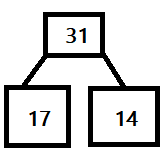
e. 13 + 26 = ____
Answer:39
A number bond is a simple addition of two numbers that add up to give the sum. Using number bonds, one can instantly tell the answer without the need for the actual calculation. Number bonds help us to understand that a whole number is made up of parts.
Given two numbers are 13 and 26
By adding 13 and 26 we get 39
13+26=39
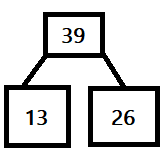
f. 17 + 17 = ____
Answer:34
A number bond is a simple addition of two numbers that add up to give the sum. Using number bonds, one can instantly tell the answer without the need for the actual calculation. Number bonds help us to understand that a whole number is made up of parts.
Given two numbers are 17 and 17
By adding 17 and 17 we get 34
17+17=34
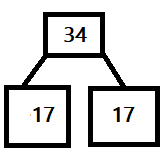
g. 18 + 15 = ____
Answer:33
A number bond is a simple addition of two numbers that add up to give the sum. Using number bonds, one can instantly tell the answer without the need for the actual calculation. Number bonds help us to understand that a whole number is made up of parts.
Given two numbers are 18 and 15
By adding 18 and 15 we get 33
18+15=33
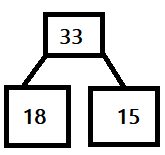
h. 16 + 17 = ____
Answer:33
A number bond is a simple addition of two numbers that add up to give the sum. Using number bonds, one can instantly tell the answer without the need for the actual calculation. Number bonds help us to understand that a whole number is made up of parts.
Given two numbers are 16 and 17
By adding 16 and 17 we get 33
16+17=33
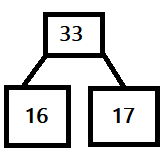
Eureka Math Grade 1 Module 4 Lesson 29 Exit Ticket Answer Key
Solve using quick ten drawings, number bonds, or the arrow way.
a. 18 + 14 = ____
Answer:32
A number bond is a simple addition of two numbers that add up to give the sum. Using number bonds, one can instantly tell the answer without the need for the actual calculation. Number bonds help us to understand that a whole number is made up of parts.
Given two numbers are 18 and 14
By adding 18 and 14 we get 32
18+14=32
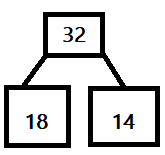
b. 14 + 23 = ____
Answer:37
A number bond is a simple addition of two numbers that add up to give the sum. Using number bonds, one can instantly tell the answer without the need for the actual calculation. Number bonds help us to understand that a whole number is made up of parts.
Given two numbers are 14 and 23
By adding 14 and 23 we get 37
14+23=37
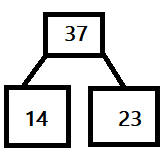
c. 28 + 12 = ____
Answer:40
A number bond is a simple addition of two numbers that add up to give the sum. Using number bonds, one can instantly tell the answer without the need for the actual calculation. Number bonds help us to understand that a whole number is made up of parts.
Given two numbers are 28 and 12
By adding 28 and 12 we get 40
28+12=40
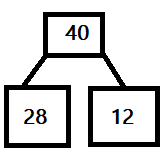
d. 19 + 21 = ____
Answer:40
A number bond is a simple addition of two numbers that add up to give the sum. Using number bonds, one can instantly tell the answer without the need for the actual calculation. Number bonds help us to understand that a whole number is made up of parts.
Given two numbers are 19 and 21
By adding 19 and 21 we get 40
19+21=40
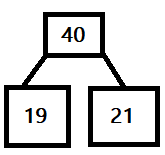
Eureka Math Grade 1 Module 4 Lesson 29 Homework Answer Key
Question 1.
Solve using quick ten drawings, number bonds, or the arrow way.
a. 13 + 15 = ____
Answer:28
A number bond is a simple addition of two numbers that add up to give the sum. Using number bonds, one can instantly tell the answer without the need for the actual calculation. Number bonds help us to understand that a whole number is made up of parts.
Given two numbers are 13 and 15
By adding 13 and 15 we get 28
13+15=28
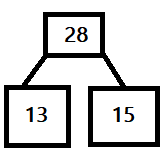
b. 26 + 12 = ____
Answer:38
A number bond is a simple addition of two numbers that add up to give the sum. Using number bonds, one can instantly tell the answer without the need for the actual calculation. Number bonds help us to understand that a whole number is made up of parts.
Given two numbers are 26 and 12
By adding 26 and 12 we get 38
26+12=38
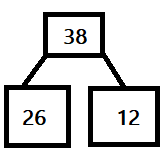
c. 23 + 16 = ____
Answer:39
A number bond is a simple addition of two numbers that add up to give the sum. Using number bonds, one can instantly tell the answer without the need for the actual calculation. Number bonds help us to understand that a whole number is made up of parts.
Given two numbers are 23 and 16
By adding 23 and 16 we get 39
23+16=39
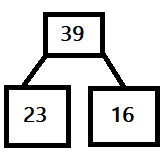
d. 17 + 16 = ____
Answer:33
A number bond is a simple addition of two numbers that add up to give the sum. Using number bonds, one can instantly tell the answer without the need for the actual calculation. Number bonds help us to understand that a whole number is made up of parts.
Given two numbers are 17 and 16
By adding 17 and 16 we get 33
17+16=33
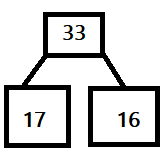
e. 14 + 17 = ____
Answer:31
A number bond is a simple addition of two numbers that add up to give the sum. Using number bonds, one can instantly tell the answer without the need for the actual calculation. Number bonds help us to understand that a whole number is made up of parts.
Given two numbers are 14 and 17
By adding 14 and 17 we get 31
14+17=31
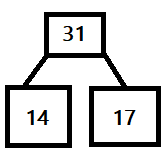
f. 27 + 12 = ____
Answer:39
A number bond is a simple addition of two numbers that add up to give the sum. Using number bonds, one can instantly tell the answer without the need for the actual calculation. Number bonds help us to understand that a whole number is made up of parts.
Given two numbers are 27 and 12
By adding 27 and 12 we get 39
27+12=39
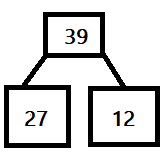
g. 15 + 18 = ____
Answer:33
A number bond is a simple addition of two numbers that add up to give the sum. Using number bonds, one can instantly tell the answer without the need for the actual calculation. Number bonds help us to understand that a whole number is made up of parts.
Given two numbers are 15 and 18
By adding 15 and 18 we get 33
15+18=33
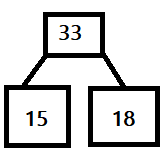
h. 18 + 16 = ____
Answer:34
A number bond is a simple addition of two numbers that add up to give the sum. Using number bonds, one can instantly tell the answer without the need for the actual calculation. Number bonds help us to understand that a whole number is made up of parts.
Given two numbers are 18 and 16
By adding 18 and 16 we get 34
18+16=34
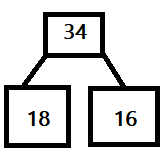
Question 2.
Solve using quick ten drawings, number bonds, or the arrow way.
a. 17 + 12 = ____
Answer:29
A number bond is a simple addition of two numbers that add up to give the sum. Using number bonds, one can instantly tell the answer without the need for the actual calculation. Number bonds help us to understand that a whole number is made up of parts.
Given two numbers are 17 and 12
By adding 17 and 12 we get 29
17+12=29
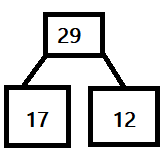
b. 21 + 17 = ____
Answer:38
A number bond is a simple addition of two numbers that add up to give the sum. Using number bonds, one can instantly tell the answer without the need for the actual calculation. Number bonds help us to understand that a whole number is made up of parts.
Given two numbers are 17 and 21
By adding 17 and 21 we get 38
21+17=38
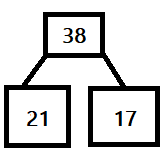
c. 17 + 15 = ____
Answer:32
A number bond is a simple addition of two numbers that add up to give the sum. Using number bonds, one can instantly tell the answer without the need for the actual calculation. Number bonds help us to understand that a whole number is made up of parts.
Given two numbers are 17 and 15
By adding 17 and 15 we get 32
17+15=32
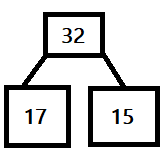
d. 27 + 13 = ____
Answer:40
A number bond is a simple addition of two numbers that add up to give the sum. Using number bonds, one can instantly tell the answer without the need for the actual calculation. Number bonds help us to understand that a whole number is made up of parts.
Given two numbers are 13 and 27
By adding 13 and 27 we get 40
27+13=40
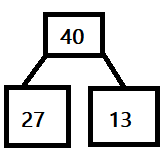
e. 23 + 14 = ____
Answer:37
A number bond is a simple addition of two numbers that add up to give the sum. Using number bonds, one can instantly tell the answer without the need for the actual calculation. Number bonds help us to understand that a whole number is made up of parts.
Given two numbers are 23 and 14
By adding 23 and 14 we get 37
23+14=37
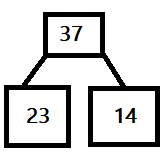
f. 18 + 17 = ____
Answer:35
A number bond is a simple addition of two numbers that add up to give the sum. Using number bonds, one can instantly tell the answer without the need for the actual calculation. Number bonds help us to understand that a whole number is made up of parts.
Given two numbers are 18 and 17
By adding 18 and 17 we get 35
18+17=35
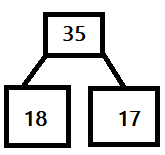
g. 18 + 11 = ____
Answer:29
A number bond is a simple addition of two numbers that add up to give the sum. Using number bonds, one can instantly tell the answer without the need for the actual calculation. Number bonds help us to understand that a whole number is made up of parts.
Given two numbers are 18 and 11
By adding 18 and 11 we get 29
18+11=29
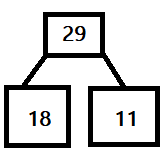
h. 18 + 18 = ____
Answer:36
A number bond is a simple addition of two numbers that add up to give the sum. Using number bonds, one can instantly tell the answer without the need for the actual calculation. Number bonds help us to understand that a whole number is made up of parts.
Given two numbers are 18 and 18
By adding 18 and 18 we get 36
18+18=36
